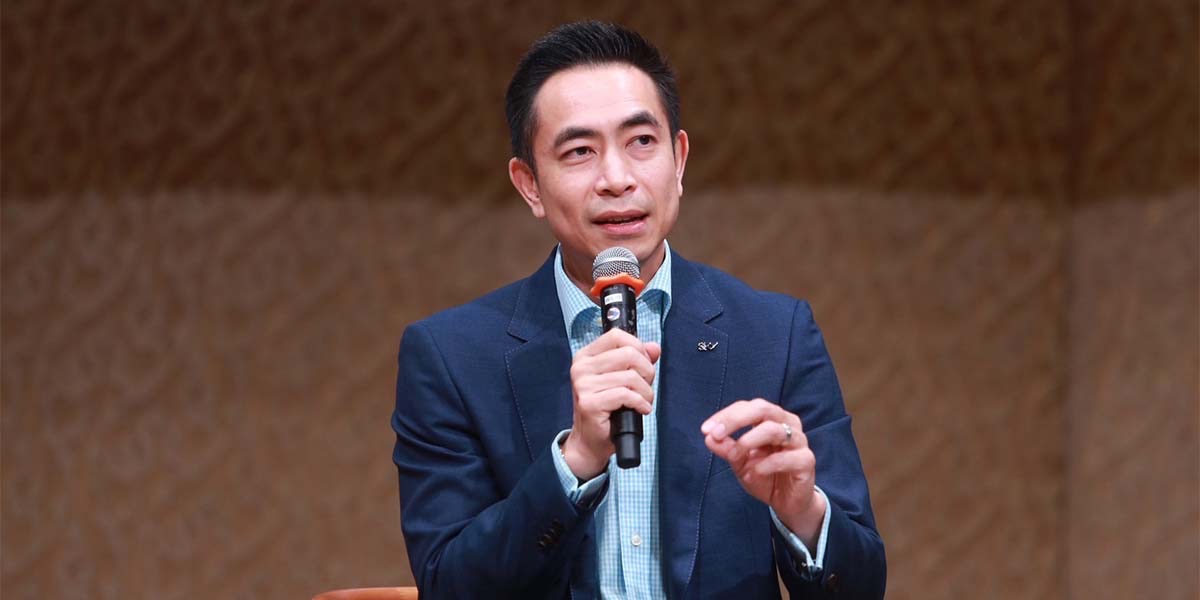Mr. Sithidej Mayalarp, CEO of SKY ICT Public Company Limited (SET: SKY), laid out his company’s ambitions to cement Thailand’s position as a Southeast Asian aviation hub at the “Market’s New Magnet” event by Kaohoon Daily Newspaper. He highlighted SKY’s rapid evolution from a technology developer to a holistic aviation service provider, integrating systems crucial to the backbone of Thailand’s airport operations.
Driving Aviation Modernization
SKY’s technology is now embedded in over 13 Thai airports, providing passenger ticketing, over 196 self-check-in kiosks at Suvarnabhumi Airport, and 70–80 at Don Mueang. Automation is being pushed further with self-bag drop services, Passenger Validation Systems, and biometric boarding gates—already active at Thailand’s largest international airports. These advancements not only streamline passenger flow but also boost security by enabling real-time suspect tracking and facilitating law enforcement capture of criminals.
The company’s reach extends to passenger amenities and operational efficiency. From “Sawasdee by AOT” Wi-Fi to autonomous cleaning robots at Suvarnabhumi, SKY is focused on elevating passenger experience and airport productivity. In ground services, SKY holds a 24% stake in AOT Ground Aviation Services, currently bidding for a lucrative 25-year cargo and ground services concession at Suvarnabhumi Airport.
Strengthening Hub Aspirations
Sithidej said Thailand’s strategic location makes it a natural contender alongside Singapore and Hong Kong to serve as a top-three regional aviation hub, targeting growth in both passenger volume (with plans to boost Suvarnabhumi’s capacity from 60 to 80 million annual travelers) and cargo. However, logistic capabilities—handling just 100,000 tons of cargo annually, far behind Singapore and Hong Kong—remain a gap to close.
Flight frequency, robust airline fleets, and around-the-clock operations were flagged as essential to serious hub ambitions. Singapore Airlines’ larger fleet and 24-hour schedules presently provide a competitive edge, Sithidej noted, while calling for greater digitalization and analytics at Thai airports to reduce bottlenecks and dwell time.
Growth Trajectory and Diversification
SKY delivered robust first-half 2025 earnings—revenue surged 67% to THB 5.8 billion, while net profit jumped 84% to THB 405 million, driven by its Technology as a Service (TaaS) model and steady passenger growth. This resilience came despite a 30% drop in Chinese tourist arrivals, as international flights continued to rise.
Beyond aviation, SKY is broadening its footprint with ventures in smart facility management, AI-powered contact centers, and public sector system integration, underpinned by a 12,000-strong workforce. The group has invested over $25 million in AI and security tech, with plans to raise net profit margins to at least 12% in 2025 and expand internationally, particularly in Indonesia. Strategic M&A opportunities are also on the table.
Investment Outlook
Urging a pivot towards “Sunrise Industries” such as technology and innovation, Sithidej argued for bolder capital allocation in cutting-edge fields rather than traditional Thai blue chips, emphasizing that supporting visionary sectors is crucial for long-term economic transformation.





